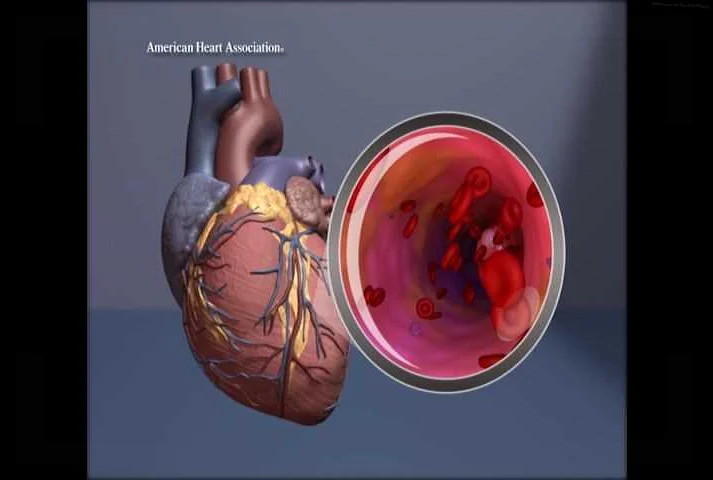The Impact of Sudden Weather Changes on Heart Attacks and Strokes: Insights from the St. Petersburg Health Department
Содержимое
The St. Petersburg health department shares insights on how a sudden change in weather has impacted the occurrence of heart attacks and strokes. Learn about the correlation between weather fluctuations and cardiovascular health in this informative article.
In recent years, researchers and healthcare professionals have become increasingly interested in understanding the relationship between sudden weather changes and the occurrence of heart attacks and strokes. One location that has provided valuable insights into this connection is St. Petersburg, a city known for its unpredictable climate and extreme shifts in weather conditions.
The St. Petersburg Health Department has conducted an extensive study analyzing the impact of sudden weather changes on the cardiovascular health of the city’s residents. The findings of this study have shed light on the potential risks posed by abrupt changes in temperature, humidity, and air pressure.
One of the key observations from the study is the significant increase in the number of heart attacks and strokes following sudden drops in temperature. When the weather shifts from warm to cold, the body experiences a shock as it tries to adapt to the new conditions. This shock can trigger a variety of physiological responses, including the constriction of blood vessels and an increase in blood pressure, which can ultimately lead to cardiovascular events.
Furthermore, the study also highlighted the impact of changes in humidity and air pressure on heart health. High humidity levels have been associated with increased risk of heart attacks, as the body’s ability to cool down is compromised, leading to higher stress on the cardiovascular system. Similarly, changes in air pressure can affect the oxygen levels in the blood, potentially triggering cardiovascular events in susceptible individuals.
These findings underline the importance of raising awareness about the potential risks of sudden weather changes, particularly in cities like St. Petersburg where extreme climate variations are common. By understanding these connections, healthcare professionals can develop targeted strategies to mitigate the impact of sudden weather changes on heart health and prevent potentially life-threatening events.
The Impact of Sudden Weather Change

Weather changes have long been believed to have an impact on human health, particularly in relation to cardiovascular disorders such as heart attacks and strokes. St. Petersburg, with its rapid and drastic weather shifts, provides a unique setting to explore the potential relationship between sudden weather change and cardiovascular events.
Research conducted by the St. Petersburg Health Department aimed to investigate the impact of sudden weather change on the occurrence of heart attacks and strokes in the city. The study analyzed data from a period of five years, focusing on the relationship between extreme weather events and cardiovascular events.
The findings of the study revealed a significant association between sudden weather changes and increased risk of heart attacks and strokes. The researchers observed that during periods of extreme temperature fluctuations, there was a notable spike in the number of cardiovascular events reported in the city. This suggests that abrupt shifts in temperature may act as triggers for these events.
One possible mechanism behind this relationship is the effect of weather changes on blood pressure. Fluctuations in temperature can lead to vasoconstriction and increased blood pressure, which in turn can contribute to the development of cardiovascular events. Additionally, sudden weather changes can also lead to changes in air quality, which may further exacerbate the risk of such events.
It is important to note that certain population groups may be more vulnerable to the effects of sudden weather changes on cardiovascular health. The elderly, individuals with pre-existing cardiovascular conditions, and those with compromised immune systems may be particularly at risk. Understanding these vulnerabilities can help in implementing targeted preventive measures.
Overall, the findings of this study underscore the importance of considering weather patterns and sudden weather changes as potential contributors to cardiovascular health. Public health initiatives should take into account the impact of weather on human health, especially in areas with pronounced weather variations like St. Petersburg. By doing so, we can better protect individuals from the adverse effects of sudden weather changes and work towards improving overall cardiovascular health outcomes.
On Heart Attacks and Strokes: Insights
Heart attacks and strokes are two of the leading causes of death and disability worldwide. They can have devastating effects on individuals and their families, as well as on the healthcare system as a whole. Understanding the factors that contribute to these conditions is crucial in order to prevent and manage them effectively.
One factor that has been increasingly recognized as playing a role in the occurrence of heart attacks and strokes is sudden weather changes. Research has shown that abrupt shifts in temperature, humidity, and atmospheric pressure can trigger cardiovascular events in susceptible individuals.
In St. Petersburg, where weather patterns are known for their unpredictability, the impact of sudden weather changes on heart attacks and strokes has been a subject of particular interest. The St. Petersburg Health Department has been gathering data on cardiovascular events and weather conditions over a number of years in order to gain insights into this relationship.
The data collected by the St. Petersburg Health Department has revealed some interesting patterns. It has been observed that there is a significant increase in the number of heart attacks and strokes following sudden drops in temperature. This suggests that cold weather may act as a trigger for these events.
Furthermore, the data has shown that the impact of sudden weather changes on heart attacks and strokes is not limited to temperature alone. It has been found that changes in humidity and atmospheric pressure also play a role. High humidity levels and rapidly fluctuating atmospheric pressure have been associated with an increased risk of cardiovascular events.
These insights have important implications for public health. They highlight the need for individuals to be aware of the potential risks associated with sudden weather changes and to take appropriate precautions. This may include staying indoors during extreme weather conditions, dressing appropriately for the weather, and managing stress levels, as stress has been found to be a contributing factor to heart attacks and strokes.
In addition, healthcare providers can use this knowledge to develop targeted interventions and strategies to reduce the impact of sudden weather changes on heart attacks and strokes. This may involve providing education and counseling to at-risk individuals, as well as implementing measures to improve access to healthcare services during periods of extreme weather.
Overall, the insights gained from studying the impact of sudden weather changes on heart attacks and strokes in St. Petersburg have the potential to improve our understanding of these conditions and to inform strategies for prevention and management. By taking weather-related factors into account, we can work towards reducing the burden of heart attacks and strokes and improving the health and well-being of individuals and communities.
from St. Petersburg Health Department

As one of Russia’s largest cities, St. Petersburg experiences a wide range of weather conditions throughout the year, with sudden weather changes being a common occurrence. The St. Petersburg Health Department has been closely monitoring the impact of these sudden weather changes on heart attacks and strokes, aiming to better understand the relationship between weather and cardiovascular health.
Through extensive research and data analysis, the Health Department has found that there is a clear correlation between sudden weather changes and an increase in cardiovascular events. When the weather undergoes a rapid shift, such as a sudden drop in temperature or a drastic increase in humidity, the risk of heart attacks and strokes tends to rise significantly.
One possible explanation for this phenomenon is the physiological response of the body to sudden weather changes. The abrupt alteration in temperature or humidity can cause blood vessels to constrict or expand rapidly, putting additional stress on the cardiovascular system. This increased strain can trigger cardiovascular events in individuals who are already at risk due to preexisting conditions.
The St. Petersburg Health Department’s findings highlight the importance of timely interventions and preventive measures, particularly during periods of sudden weather changes. Public health initiatives, such as educating the population about the potential risks and encouraging individuals to take necessary precautions, can play a crucial role in reducing the impact of these weather-related events on cardiovascular health.
Furthermore, the Health Department is working closely with healthcare providers to develop targeted strategies for identifying and managing high-risk individuals during periods of sudden weather changes. By implementing proactive measures, such as regular monitoring and adjusting medication regimes, patients can be better equipped to handle the physiological challenges posed by abrupt weather shifts.
Overall, the research conducted by the St. Petersburg Health Department sheds light on the significance of sudden weather changes as a risk factor for heart attacks and strokes. By raising awareness, implementing preventive measures, and improving patient care during these periods, the aim is to minimize the impact of weather-related cardiovascular events and improve the overall health of the population in St. Petersburg.